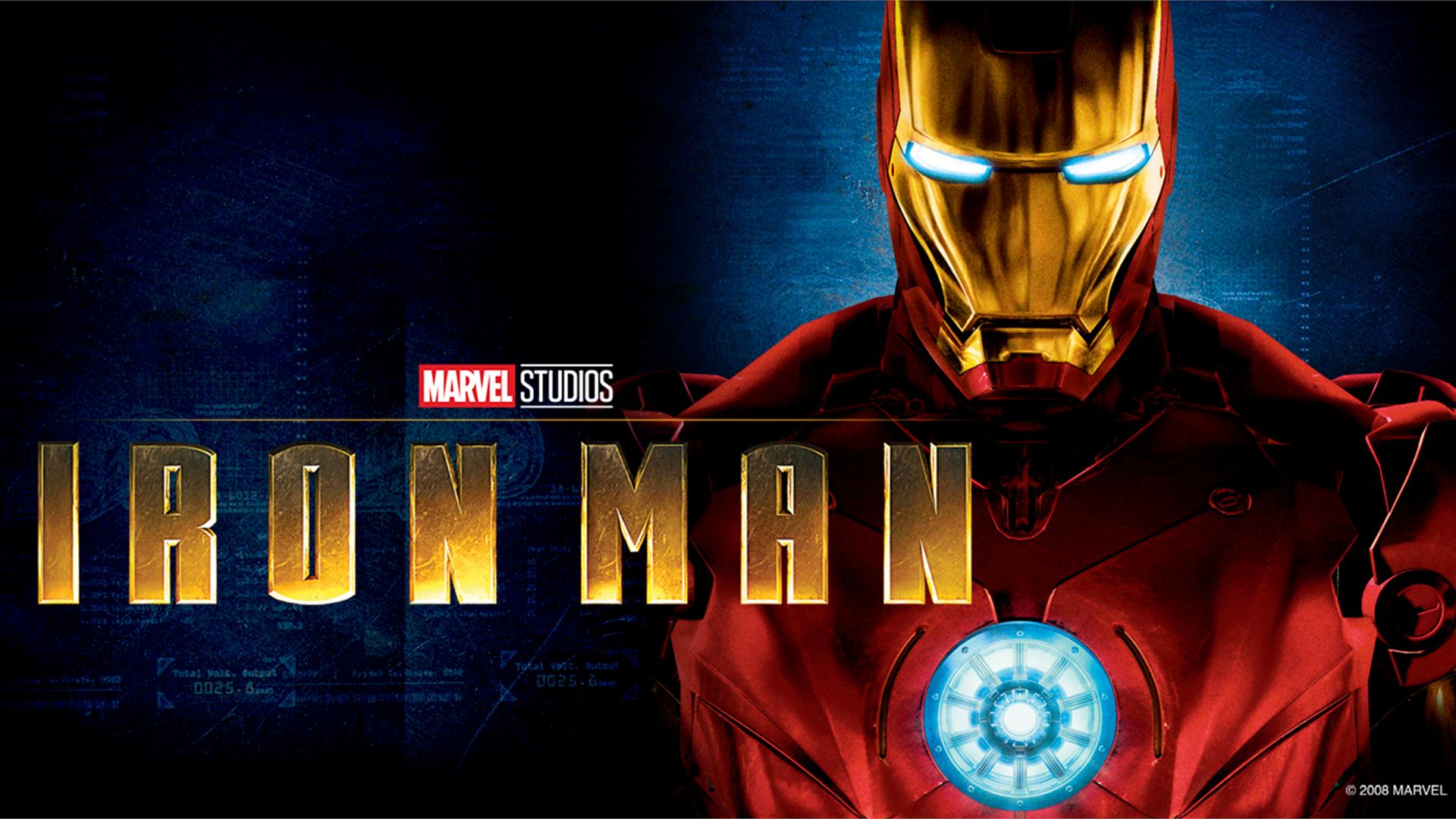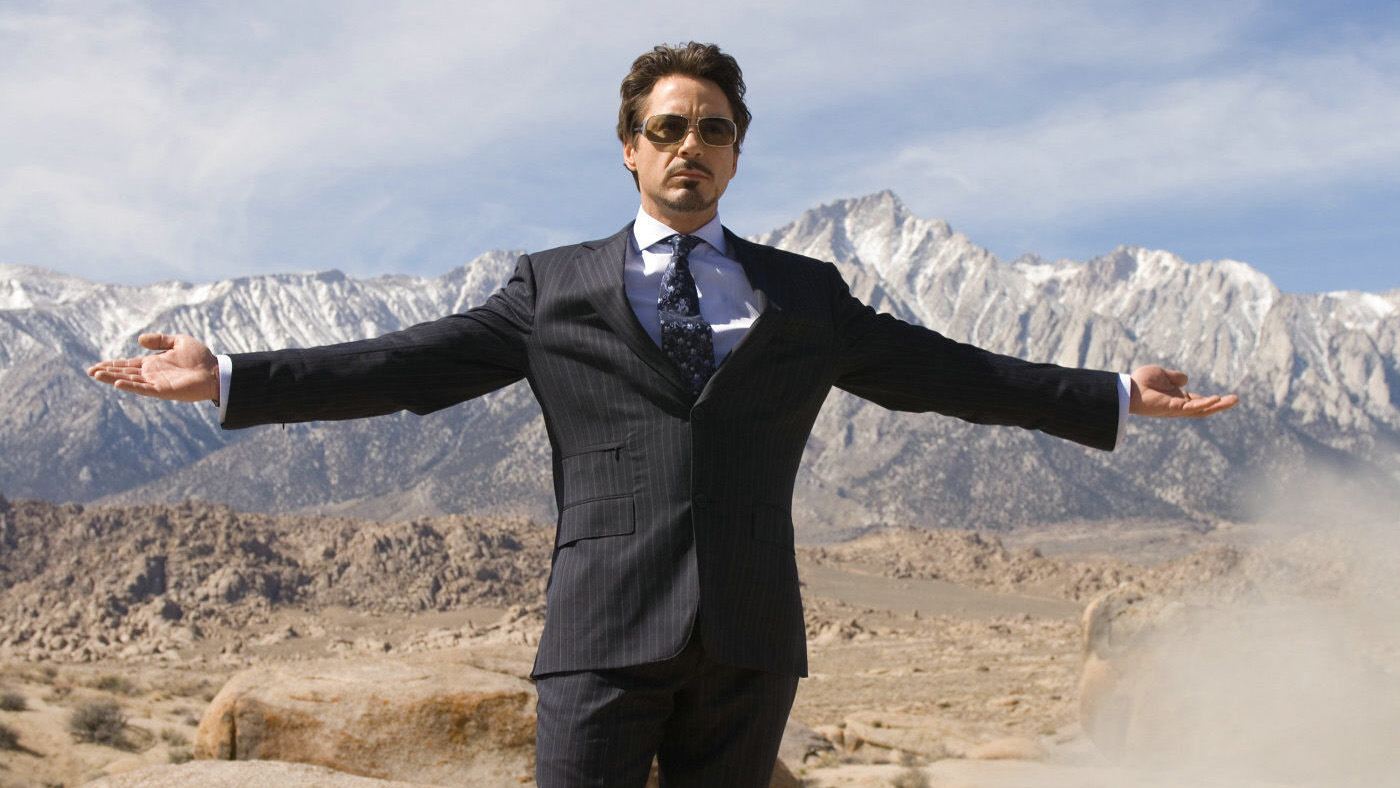With Iron Man, Marvel began a universe of flawed heroes and tales of redemption
Revisiting the first Iron Man movie

Over the coming months, we're rewatching the Marvel movies in order for a series of articles. First up, we're talking about 2008's Iron Man.
In a year where movies are being constantly delayed due to current events, this is the longest period fans have gone without the Marvel Cinematic Universe. With much of the future and general direction of the MCU a mystery, there isn’t much we can do but look back. Look back at the beginning. A legacy that begins and ends (so far) with Iron Man, the 2008 film that launched a universe on the back of Tony Stark, one of the most flawed heroes in comic books.
The arrogance of Tony Stark
Iron Man is a high sci-fi adventure with an underlying tale of redemption. Tony Stark is an arrogant and witty technologist who despite his moral shortcomings, has this magnetic personality. Love him or hate him, he’s a compelling character to follow. Iron Man introduces us to Tony already in his prime, but not as a hero and certainly not as someone admirable. No, Tony is the head of Stark Industries and America’s number one weapons developer. It’s only when his life is in danger and he discovers his weapons in the hands of the enemy that his road to redemption begins.
A chance encounter with Yensin, a man with a much greater moral compass than himself, puts Tony on the path to redemption. Iron Man is born out of Tony’s guilt at the destruction his weapons have wrought and a promise made to be better and protect the people he once put in harm’s way. To keep that promise, Tony dismantles his company’s weapons division and perfects the Iron Man armor to become his vision of the world’s protector. By the end of the movie, though, much of Tony’s personality is unchanged and his rocky journey towards altruism has only just begun.
Watching Iron Man today

Watching Iron Man 12 years later, knowing that 22 MCU movies would follow, is a pleasantly nostalgic experience. Looking back, it’s amazing how well the MCU’s first film holds up, with a heady mix of practical effects and CGI that holds up well next to the latest MCU films. In places, the movie looks better than some of the later films that heavily rely on CGI. Memorable moments are still satisfying to watch, from Tony’s creation and testing of the Iron Man armor to the Mark III’s arrival in Afghanistan. Watching this movie never gets old, especially in how Robert Downey Jr. fully embodies the role of Tony Stark to a tee. It's enough to please comic book fans, while drawing newcomers in with his quick wit and sarcasm.
To this day, Tony Stark is a character I love to hate. Stark is the ultimate flawed hero, and that’s what makes Iron Man so compelling. Downey’s performance conveys everything we need to know about the character within the first 15 minutes of the film. While he strives to do better, there is a part of him that will always get in his own way. Most heroes go through a fundamental metamorphosis, forever changing them into someone better than who they were. From the beginning to the end of the first Iron Man, though, Tony’s the same person, even as Stark Industries leaves the weapons business.
Tony’s arrogance never leaves him, and you can see that in the character's iconic proclamation, “I Am Iron Man.” The hypocrisy of Tony Stark is honoring Yensin’s wish by rightfully dismantling his weapons division, only to create the Iron Man armor, which is perhaps the greatest weapon the world has seen. Don’t get me wrong: watching Tony create and develop the Iron Man armor is one of the best sequences in the film, from the futuristic holographic displays to his banter with Jarvis and his other machines. That said, the struggle of Tony going against his own nature is what drives the film, as well as his entire MCU arc.
Get daily insight, inspiration and deals in your inbox
Sign up for breaking news, reviews, opinion, top tech deals, and more.
Building a universe
To say that Iron Man had an impact on the superhero genre would be a bit of an understatement. In 2008, the MCU had a lot riding on an experiment. The future of its films and their studio was dependent on the success of a hero who was relatively B-level at that time, a strange thing to consider when today Tony Stark and Iron Man are household names.
In the era before Iron Man, superhero movies were plagued by the demand to make them dark and gritty. That’s mostly thanks to the successes of films like Spider-Man (the third entry of which went dark, to poor effect), X-Men and The Dark Knight franchise. Marvel’s decision to have more fun with Iron Man was a breath of fresh air, and a key part of why the MCU movies would succeed.
The character never takes himself too seriously, and that defines the tone of the film. Iron Man focused on having fun with the viewers while still taking the time to lay out the stakes, which made for a mostly lighthearted adventure. The formula for Iron Man’s success would go on to shape future MCU films, superhero films, and Hollywood's approach to blockbusters in a broader sense.
The ambition of what that post-credits sequence promised – Samuel L. Jackson's Nick Fury unveiling the Avengers initiative to Tony – was enough to get fans talking about what could happen next. Not only did Marvel find success in what Iron Man started, but it spawned a slew of imitators who all haphazardly tried to put together their own connected universes over the coming years.
Heroes born of mistakes
There are a lot of traits from the first Iron Man movie that the MCU borrows for the rest of its films – mostly the theme of the flawed hero. Watching the original Iron Man film, you begin to see how that theme influences future heroes, who also share their own set of mistakes. Thor’s quest to become worthy is only complete after he learns compassion and humility. Captain America may have been the exception in his debut film, but he too falls into the trappings of the flawed hero in later films, and finds more moral complexity in the gray areas of The Winter Soldier and Civil War.
The same can be said of Spider-Man, Black Panther, and the heroes of many other MCU films. Marvel’s focus on this theme makes our heroes feel so much more human and grounded. When they make their mistakes, we want to see them redeem themselves. Are they perfect by the film’s end? No. They are, however, set on the path to becoming a better hero. Something that Iron Man completes by the time Endgame rolls around.
You can see why this film is the catalyst for every MCU movie that comes after it.